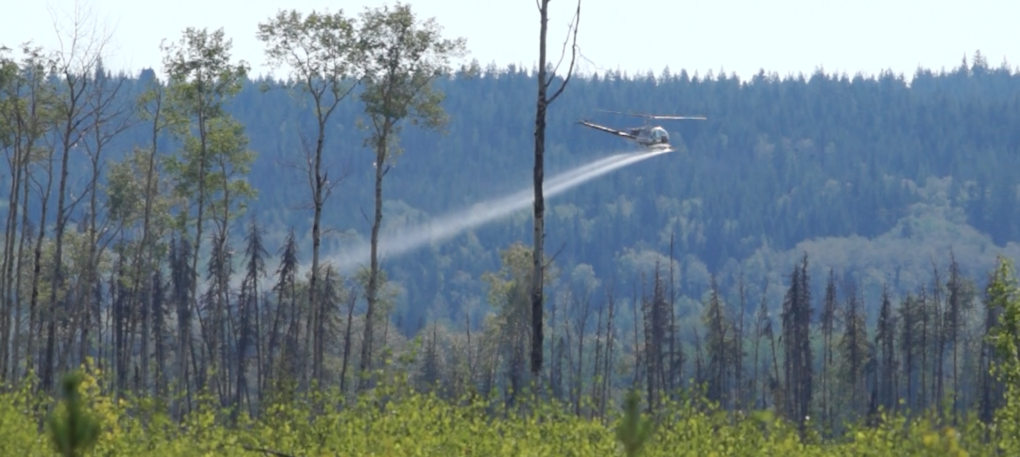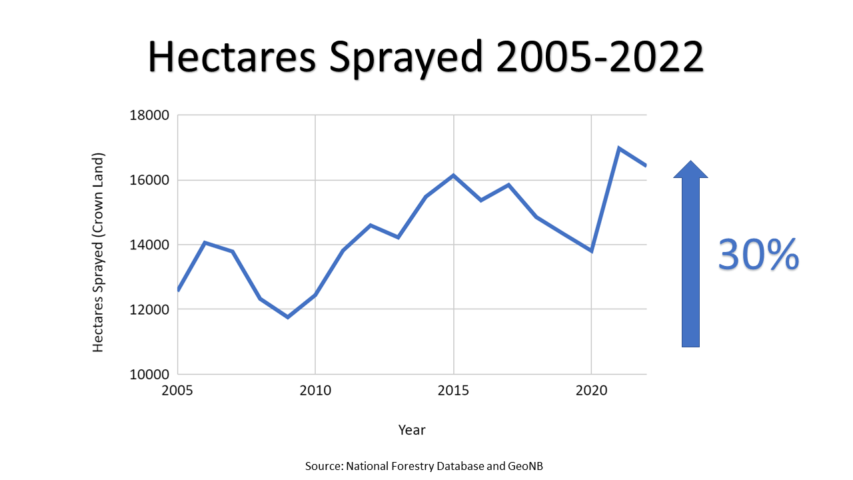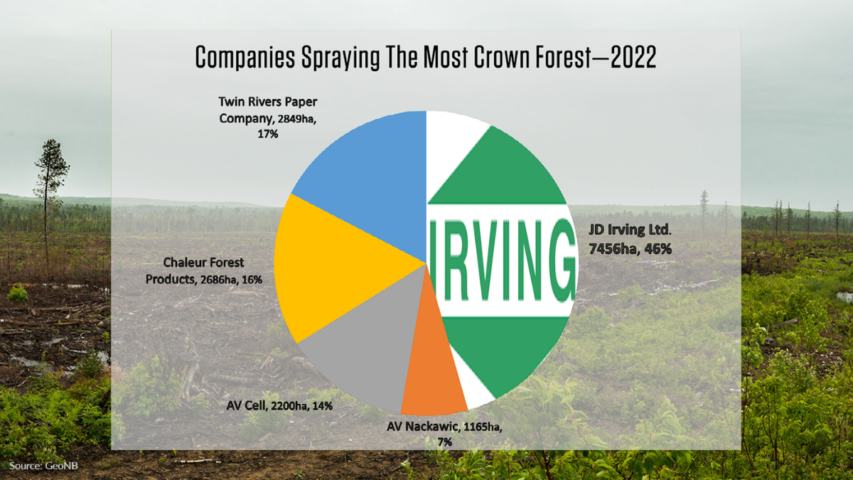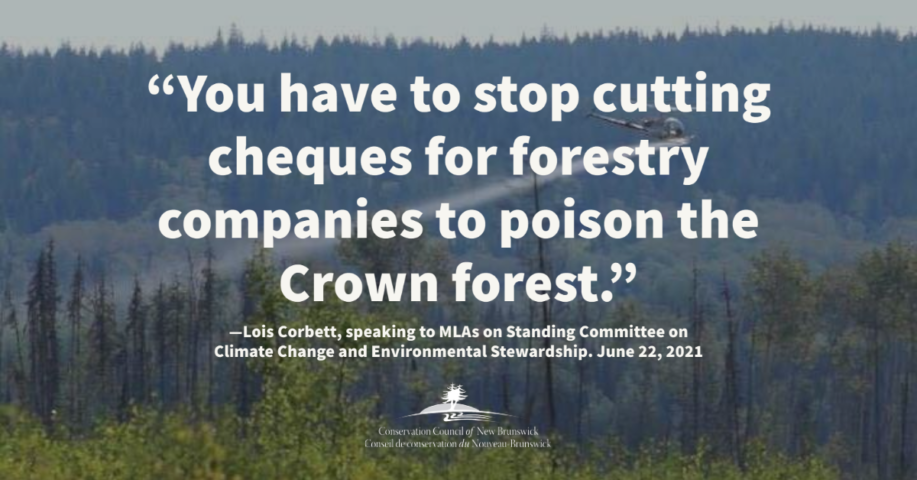J. D. Irving leads the pack, spraying 55% more than it did 17 years ago
Think there is more herbicide spraying happening in your neck of the woods these days? If you live near Crown land, you’re right—by a significant margin.
Glyphosate-based herbicide spraying on New Brunswick’s Crown forest is up 30 per cent compared to what was sprayed 17 years ago, according to data from the National Forestry Database and GeoNB.
The biggest forestry companies are slated to spray 16,424 hectares of Crown land this season. In 2005, they sprayed 12,558.7 ha.
As the province’s largest forestry company, J.D. Irving of course leads the pack. Spraying on Crown land clearcuts harvested and managed by Irving has increased by 55 per cent between 2005 and 2022.
J.D. Irving is projected to spray 7,456 hectares of Crown land this season—more than it or any company has sprayed in a single summer over the past 17 years.
The next biggest sprayer this year, Twin Rivers Paper Company, won’t even spray half that much, at 2,849 ha.
Spraying is done by helicopter beginning in August and typically wraps up in September.
The increased herbicide sprayed in N.B.’s Crown forest is a symptom of a larger problem, of course—an old-fashioned management regime that sees corporate profits and timber supply trump everything.
Clearcutting remains the harvest method of choice. The N.B. Auditor General reported in 2015 and again in 2021 that clearcutting is running consistently at around 80 per cent while selective and partial cuts decline significantly, even though the latter methods are recognized as best management practices because they protect waterways, wildlife habitat, and preserve a healthy range of plant and animal life in the woods.
You can track the rise of clearcutting in N.B. over the years using the national database.
The numbers show how little the province’s biggest forestry companies care about what New Brunswickers want to see in their woods: less clearcutting, no more spraying.
Despite the petition of 35,000-citizens strong calling for a ban, despite the 8,000 New Brunswickers who have used our letter-writing tool calling on government to ban spraying, despite the first-ever standing committee hearings specifically about glyphosate use in New Brunswick—where citizen groups joined with scientists and First Nations to call for Crown forestry reform and glyphosate bans—clearcutting and spraying continues unabated by the ‘big five’ forestry companies (J.D. Irving, Twin Rivers, Chaleur Forest Products, AV Cell, and AV Nackawic).
The Conservation Council will continue to speak up for citizens who want to see sensible, fair, ecological forestry in New Brunswick.
Click here to use our letter-writing tool to tell your local MLA and all party leaders that you want an end to herbicide spraying in New Brunswick.
Click here to see our 2022 spraying hotspots map and to learn more about spraying, including recent court-ordered reevaluations of glyphosate authorizations in Canada and the U.S.
Hot tip: tune in to CBC’s The Passionate Eye on Sept. 16 for the broadcast premiere of Into The Weeds, Canadian filmmaker Jennifer Baichwal’s new documentary which tells the powerful story of Dewayne “Lee” Johnson, a former g96roundskeeper who took on multinational agrochemical giant Monsanto after a terminal cancer diagnosis. The documentary will also be available to stream for free on CBC Gem beginning Sept. 17.
Learn more about forestry reform and nature protection in N.B.
Learn more about forestry reform and nature protection in N.B.
Sources:
- Crown land spraying between 2005-2022: National Forestry Database
- J.D. Irving spraying, 2022: GeoNB
- Twin River Paper Company spraying, 2022: GeoNB




